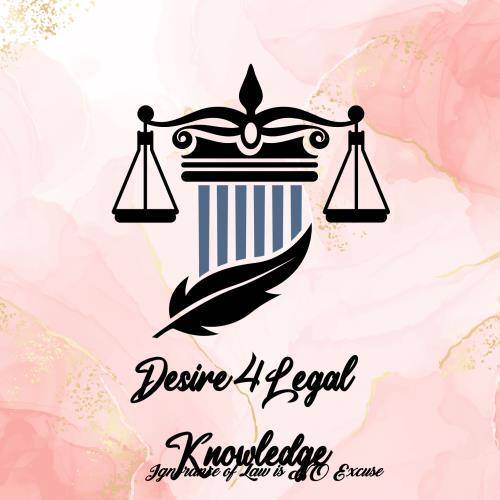What is the Acceptance under Indian Contract Act, 1872- Free Article
Introduction
The acceptance is another very important element of a contract. Without acceptance, there can be no contract. An offer, acceptance, and consideration are the major components of the contract. In this article, we are going to discuss the definition, essentials, and cases related to valid acceptance.
Meaning of The Acceptance
According to Section 2(b) of the Indian Contract Act, 1872 “When the person to whom the proposal is made signifies his assent thereto, the proposal is said to be accepted. A proposal when accepted, becomes a promise.”
Essentials of a Valid Acceptance
- Acceptance must be absolute and unconditional.
- Acceptance must be communicated to the offeror
- Acceptance must be made within the reasonable time
- The offer must be accepted in the prescribed mode, usual mode, and reasonable mode
- The acceptor must be aware of the proposal at the time of acceptance.
- Acceptance must be given before the offer lapses or before it is revoked.
Acceptance must be absolute and unconditional.
The acceptance should be absolute, certain, and unconditional. If the acceptance given is conditional, it is not considered an acceptance but a counter offer.
Case: Hyde vs. Wrench
In Hyde vs. Wrench, Wrench made an offer to Hyde to sell his estate for 1200 pounds which Hyde rejected. Then Wrench made a final offer to Hyde for selling his estate at the price of 1000 pounds, to which Hyde offered to pay 950 pounds. This offer was rejected by Wrench. Then Hyde accepted the offer to buy his estate at the price of 1000 pounds. Wrench refused this again. Hyde moved an action against Wrench for breach of contract. It was held that Hyde was not liable for the breach of contract as there was no valid offer. There was just a counter-offer that negated the original offer.
Acceptance must be communicated to the offeror
The offeree must signify his assent, which can be done by conduct or act. It can be oral, written, or by conduct. In this case, there arises three conditions:-
- Communication of acceptance made by offeree or his authorized agent.
Case:- Powell vs. Lee
In Powell vs. Lee, Powell was one of the candidates for the post of headmaster of a school. The Board of Managers passed a resolution to make Powell the headmaster. No communication of this decision was made to Powell by the Board or their authorized agents. One of the members of the Board who was not an authorized agent, in his personal capacity, communicated this decision of the Board of Managers to Powell. Ultimately, the Board of Managers sat again and decided to cancel the appointment of Powell and appoint another candidate for the post.
Powell moved an action against Lee, the Chairman of the Board of Managers, for the breach of contract. It was held that since the resolution passed was not communicated to Powell by Lee or any other authorized agent. Therefore, there was no contract between Powell and Lee.
- 2. Communication of the acceptance to the wrong person
The acceptance should be communicated to the person who made the offer. The communication of the acceptance to any person other than the offeror does not give rise to a contract. For example, if the letter of acceptance is posted at the wrong address or to the wrong person then it will not bind the offeror.
- 3. Communication of the acceptance is not needed when the it is made by conduct.
Performance of the conditions given in the offer results in acceptance of the offer. There is no need of communicating the acceptance to the offeror.
Case:- Carlill vs. Carbolic Smoke Ball Co.
In Carlill Vs. Carbolic Smoke Ball, the defendant company made an advertisement that anyone who will use their product in the suggested manner and follows the terms and conditions will remain safe from influenza. The plaintiff who followed all the terms and conditions mentioned and used the product in the suggested manner but caught influenza. In an action brought against the company by the defendant, it was held that the plaintiff was liable for the breach of contract as the offer was a general offer and the defendant by following the terms and conditions accepted that offer. There was no need of communicating the acceptance to the company.


Acceptance must be made within the reasonable time.
The acceptance must be made within the time allotted in the offer. If there is no such time limit present in the offer, then it should be made within a reasonable time. If it is not made within the reasonable time or the specified time, then it will not result in a valid acceptance.
The offer must be accepted in the prescribed mode, or usual mode and reasonable mode.
According to Section 7(2) of the Indian Contract Act of 1872, the acceptance must be expressed in the reasonable and usual mode unless and until the offer does not prescribe the mode of acceptance of the offer.
Case:- State of MP vs. Gobardhan Das
In State of MP vs. Gobardhan Das, the Chief Conservator of Forests invited for the auction of certain products of lacs and lacs of quantity. But he placed a condition that whoever made the highest bid have to pay 25% of the purchase price immediately and the rest of 75% of the purchase price afterward. The defendant, who made the highest bid, failed to pay 25% of the purchase price immediately as well as 75% of the purchase price afterward. As a result, the plaintiff had to make the auction again and sell the quantity to another person.
The plaintiff moved an action against the defendant for breach of contract and the recovery of the loss resulted from the resale. It was held that as the defendant failed to comply with the terms and conditions of the offer, therefore, there was no acceptance and hence, no contract was concluded.
The acceptor must be aware of the proposal at the time of acceptance.
The acceptor making the acceptance should be aware of the offer. If the acceptor is not aware of the offer but performs the conditions of the offer, no contract will come into effect.
Case:- Lalman Shukla vs Gauri Dutt
In Lalman Shukla vs Gauri Dutt, the defendant’s nephew absconded from her house. So, she sent her servant (the plaintiff) to find her nephew. As soon as the plaintiff left for searching the boy, the defendant announced that anyone who will find her nephew will be rewarded. The plaintiff ignorant of the announcement made searched the nephew of the defendant and brought him back. But, after a while when he came to know about the announcement he brought an action against the defendant to recover the said money. It was held that there was no valid contract as the plaintiff, although, performing the conditions of the offer, was ignorant of the offer.
Acceptance must be given before the offer lapses or the offer is revoked
The acceptance made by the offeree must be made within a reasonable time. It must be communicated to the offeror while the offer is in existence. Acceptance given after the offer lapses or is revoked does not give rise to a contract.
Communication of the Acceptance
According to Section 4 of the Indian Contract Act, 1872
- The communication of acceptance is complete as against the proposer, when it is put in course of transmission to him so as to be out of the power of the acceptor.
- The communication of the acceptance is complete as against the acceptor when it comes to the knowledge of the proposer.
Conclusion
From the above-stated article, we come to know how important is to make a valid acceptance in order to bind the parties in a valid contract.

